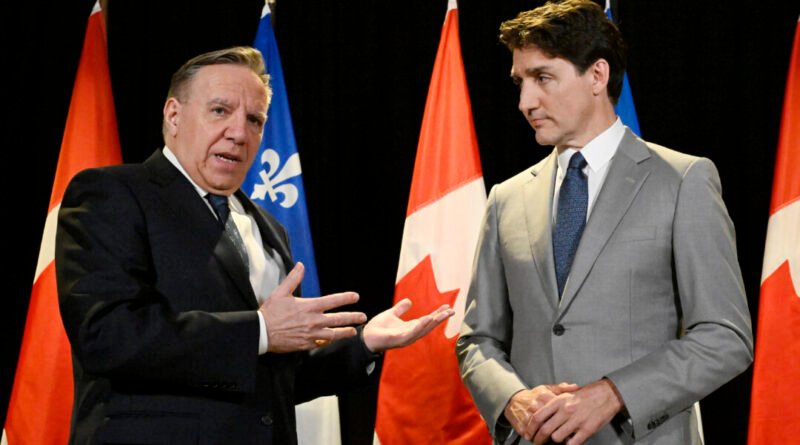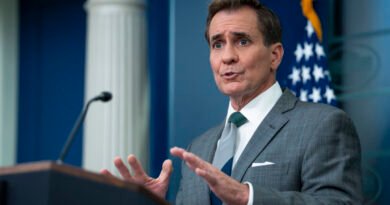Quebec Premier Legault Advocates for Increased Provincial Authority as Poll Numbers Decline
Quebec’s premier expresses his desire to acquire new powers to enhance his province’s autonomy within Canada, but experts are cautious in their expectations.
Facing challenges in the polls and a growing conflict with the federal government regarding immigration, Quebec Premier François Legault recently announced the establishment of a committee to examine the province’s rights and strengthen its authority within the federation.
The committee’s main objective is to investigate federal interference in areas under provincial jurisdiction. During a speech in the legislature with strong nationalist sentiments on June 7, Mr. Legault stated, “The federal government is increasingly centralizing and encroaching. We must further solidify Quebec’s autonomy, uphold its rights, and secure additional powers in key areas.”
On June 10, Prime Minister Justin Trudeau dismissed the move as a reaction to the rise in popularity of the sovereigntist Parti Québécois. He mentioned in a conversation with Mr. Legault in Quebec City that, “There’s nothing alarming about a province exploring ways to enhance our democracy.”
Charles Breton, from the Centre of Excellence on the Canadian Federation, believes that the committee’s formation is mainly driven by Quebec’s internal politics. He mentioned in an interview that, “I think the prime minister is right not to be overly concerned.”
Mr. Breton believes that some of the committee’s topics are more politically motivated, focusing on federal funding in areas related to provincial policies.
Mr. Legault reiterated on June 7 that Ottawa’s interference in provincial affairs “constrains the Quebec nation’s right to make independent choices.”
Mr. Breton acknowledged that the federal government has utilized its spending authority to influence provincial policies, like in child care and dental care programs. However, he noted that Quebec has the option to opt out of these programs and seek compensation. He mentioned, “So I’m uncertain about their grievances in this matter.”
The announcement of the committee came before the meeting on June 10 between Mr. Trudeau and Mr. Legault to discuss immigration. Mr. Legault expressed concerns about the pressure from 560,000 temporary immigrants in Quebec on housing and healthcare. He demanded full control over immigration for Quebec, even hinting at a referendum, and the autonomy committee has been tasked with evaluating this demand.
On June 10, Mr. Trudeau offered $750 million to the Legault government to alleviate the strain from temporary immigrants, falling short of the $1 billion request. Mr. Breton believes this funding should help “ease the tension.”
Comparing the committee to Alberta’s Fair Deal panel, Mr. Daniel Béland mentioned that it could assist in shaping the government’s agenda. However, he doubts that the report will sway the federal government significantly.
Mr. Béland stated that Mr. Legault has struggled to increase Quebec’s authority, especially concerning immigration. “He’s been criticized by opposition parties for his shortcomings in this area,” he remarked. “This indicates Francois Legault’s need to satisfy the nationalist base and demonstrate his ability to protect Quebec.”
However, Mr. Béland considers the committee’s broad mandate with a deadline of October 15 as a challenging task.
Mainly composed of academics, the committee will be co-chaired by Sébastien Proulx, a former provincial Liberal cabinet member, and Guillaume Rousseau, a law professor involved in drafting Quebec’s contentious secularism law, Bill 21.
“I hope to see actionable outcomes, but I’m unsure if that will be the case,” Mr. Breton concluded. “While exercises like this can be beneficial, we shouldn’t overestimate its significance.”





